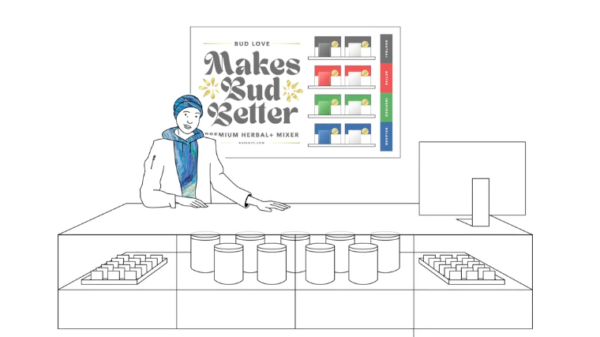A company that makes cannabinoids from yeast instead of weed plants has been approved for funding from Canada’s largest federal research and development organization.
Willow Biosciences Inc. said Wednesday they will receive conditional funding and advisory services from the National Research Council of Canada industrial research assistance program. Funding will go towards speeding up the company’s commercialization of varin cannabinoids.
The biotechnology company produces yeast-derived compounds for the global pharmaceutical, health and wellness, and consumer packaged goods industries. Producing with yeast is cheaper, creates less waste, uses less energy and water, and creates a more consistently pure product than cannabinoids extracted from cannabis, CEO Trevor Peters told Mugglehead in a June interview.
Read more: Creating cannabinoids from yeast: why it could mean trouble for extractors
Willow Biosciences originally built its yeast fermentation platform to produce cannabigerol (CBG) and cannabidiol (CBD).

The team at Willow Biosciences’ lab in Mountain View, CA. Submitted photo
In its labs in Vancouver, B.C., Calgary, Alta., and San Fransisco, CA, the Willow Biosciences team combines low-cost foodstock with an optimized yeast strain in a fermentation vessel. After fermentation the compound is purified and what’s left over is the same molecule produced by the cannabis plant.
In a statement Wednesday, Willow Biosciences said by varying the feedstock it was able to make significant progress in developing varin cannabinoids.
Varin cannabinoids are challenging and costly to produce using extraction because they occur naturally at less than 1 per cent of biomass — but they’re high in demand, the company said.
“Despite the lack of supply, there are advanced clinical trials and significant recreational interest due to the possible therapeutic benefits of the varin cannabinoids, including uses for autism, diabetes and as an appetite suppressant,” the statement reads.
Willow Biosciences is working to produce cannabigerovarin (CBGV), cannabidivarin (CBDV) and tetrahydrocannabivarin (THCV).
“We have made strong progress with our varins development to date and expect the varins program to reach scale-up phase in the first half of 2021 and market-ready levels in the second half of 2021,” CEO Peters said in the statement.
The process of using yeast to produce cannabinoids has had people questioning whether cannabis grows will be a thing of the past since a study in the journal Nature brought the science to the limelight in February 2019.
And while more and more biosynthetic companies are emerging to supply cannabinoids for everything from research to cannabis 2.0 products, don’t expect producers to scrap traditional crops — just yet.
Read more: Amyris scales production of its first yeast-created cannabinoid
Producing cannabinoids from yeast is an incredibly complicated scientific process — Willow Biosciences’ team has 20 PhD scientists, Peters said in June.
Still, as the biosynthetic cannabinoid market gains traction, Peters expects more and more companies will transition away from extraction because the high quality compounds produced by yeast equal a longer shelf life for 2.0 products.
Top image: Willow Biosciences CEO Trevor Peters says the company has a Health Canada research licence, which allows them to grow a small crop of cannabis plants to study at their B.C. facility. The plants are then harvested to isolate cannabinoids so the team knows what to make the yeast produce. Submitted photo.
michelle@mugglehead.com
@missmishelle















baron
September 9, 2020 at 7:22 pm
Biden Calls for ‘Mandatory Rehab’ Instead of Jail for Drug Crimes